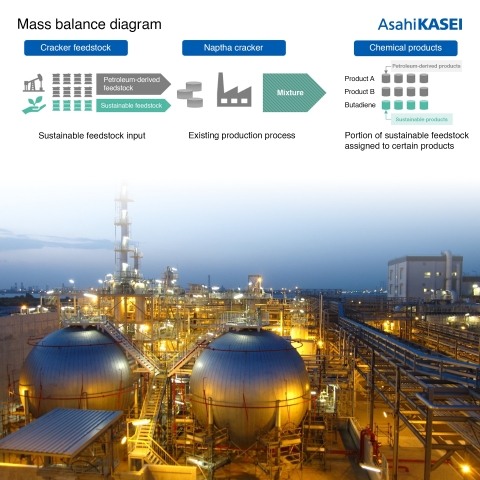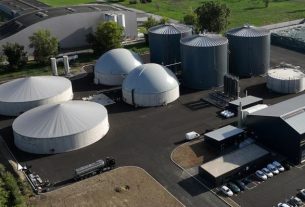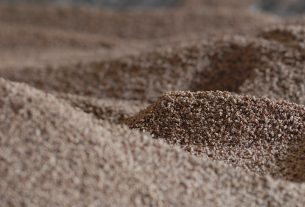Singapore – Asahi Kasei, a diversified Japanese multinational corporation, has agreed to supply butadiene derived from plastic waste and biomass to Shell Eastern Petroleum.
By the end of fiscal 2021, Asahi Kasei intends to begin producing and marketing sustainable solution-polymerized styrene-butadiene rubber (S-SBR) using sustainable butadiene at its Singapore plant.
S-SBR is a type of synthetic rubber that is primarily used in high-performance, fuel-efficient tires (eco-friendly tires). With stricter environmental regulations and increased environmental awareness, global demand for eco-friendly tires is increasing. S-SBR is recognized as an ideal material for eco-friendly tires because it improves fuel-efficiency while maintaining safety. To accelerate efforts toward carbon neutrality by 2050, the automotive industry is transitioning to electric vehicles, while the tire industry is improving tire fuel efficiency and wear resistance. Against this backdrop, there is a growing demand for S-SBR to be more sustainable as a material for eco-friendly tires.
Asahi Kasei continues to focus on technological developments for high-performance S-SBR products that enable further improvements in fuel efficiency and wear resistance to meet requirements for increased driving range and mass production of electric vehicles. Furthermore, Asahi Kasei has worked to reduce CO2 emissions throughout its supply chain by transitioning to sustainable feedstock. Shell is working to reduce CO2 emissions during chemical production and to realize a circular economy, with the goal of becoming a zero-emissions energy company by 2050, in line with society. Shell Energy and Chemicals Park Singapore, located on Bukom, will produce sustainable butadiene in two ways using the mass balance method. The first is a method of converting plastic waste into pyrolysis oil and feeding it to its Ethylene Cracker Complex, and the second is a method of feeding bio-feedstock.
Asahi Kasei will be the world’s first company to use butadiene derived from plastic waste for S-SBR production, as well as the first Japanese company to use butadiene derived from biomass (according to internal research). In the case of internal combustion engine vehicles, the proportion of CO2 emissions is highest in the use phase, which includes materials, production, use (driving), disposal, and recycling. In the case of electric vehicles, however, use-phase emissions are significantly reduced, making emissions from materials such as S-SBR relatively higher. As a result, the use of sustainable S-SBR allows for a significant reduction in CO2 emissions over the life cycle of tires. As a result, Asahi Kasei expects to make a significant contribution to lower CO2 emissions throughout the supply chain by producing S-SBR from sustainable butadiene.
Asahi Kasei will now move forward with plans to obtain international certification for biomass and recycled feedstock. Asahi Kasei aims to be a global leading sustainable partner for its customers by improving the performance of its S-SBR products and reducing CO2 emissions across the product life cycle, with the goal of becoming carbon neutral by 2050.




